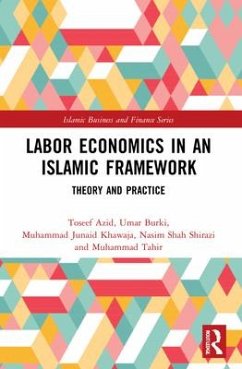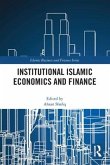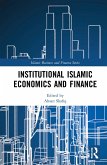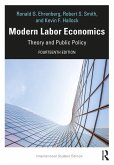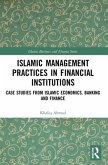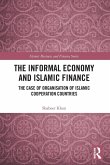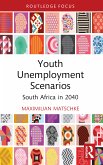The labor market in Islam is governed by the Islamic laws of fairness, justice, and reward that is equivalent to the job done. Most of the literature in the field discusses the normative aspect of the labor market, whereas few attempts can be seen to address more positive aspects. There is a need for new theoretical and empirical models for the Islamic labor market, which should differ from established approaches.
This book provides a comprehensive overview of the nature, scope, and dimensions of the labor market in an Islamic context, from both theoretical and practical perspectives. It presents and discusses labor economics and then compares the similarities and differences between conventional and Islamic views of the labor market, explaining where they meet, and critically justifying why they differ, under the umbrella of Shari'ah. The book raises pertinent issues, which it analyzes from both standpoints and widens the discourse to include norms, morality, and related institutions such as social security and welfare. A unique feature of the book is that it examines labor economics practices among a specific group of countries, and studies the labor conditions within these countries, where the majority of the population follow the teachings of Islam in their daily lives. The book proposes practical strategies for the development of new models for the Islamic labor market which are compatible with the modern world.
The book will enable academics and practitioners of Islamic economics to make economic sense of Shari'ah compliance and human resource development.
This book provides a comprehensive overview of the nature, scope, and dimensions of the labor market in an Islamic context, from both theoretical and practical perspectives. It presents and discusses labor economics and then compares the similarities and differences between conventional and Islamic views of the labor market, explaining where they meet, and critically justifying why they differ, under the umbrella of Shari'ah. The book raises pertinent issues, which it analyzes from both standpoints and widens the discourse to include norms, morality, and related institutions such as social security and welfare. A unique feature of the book is that it examines labor economics practices among a specific group of countries, and studies the labor conditions within these countries, where the majority of the population follow the teachings of Islam in their daily lives. The book proposes practical strategies for the development of new models for the Islamic labor market which are compatible with the modern world.
The book will enable academics and practitioners of Islamic economics to make economic sense of Shari'ah compliance and human resource development.
"The goal of this volume is to provide thought-provoking discussion regarding the moral and ethical corners of the labor market under the guidance of divine law. This volume also reviewed the labor market's behavior during the early Islamic, medieval and current periods. It invites the researcher to start their research on the Islamic labor market's different dimensions and asks them to develop mathematical models based on the theoretical foundations, which provides a roadmap for further discussion and empirically tests them where data are available." - Professor Dr. Mohamed Aslam Mohamed Haneef, Department of Economics, International Islamic University Malaysia.

